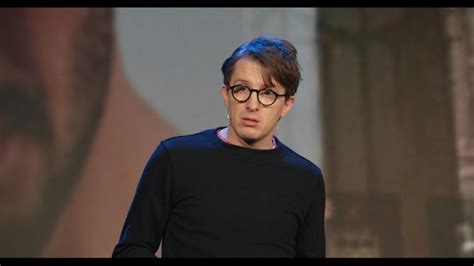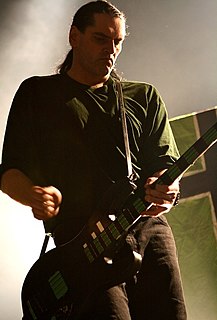A Quote by Adam Grant
I start a lot of things and purposely leave them unfinished. When I have a bunch of really long emails, and I need time to think about the response, I'll actually start replying, leave them as drafts, and move onto something else mid-sentence.
Related Quotes
Sometimes I'll be fifty, sixty pages into something and I'll still be calling a character "X." I don't have a very clear idea of who the characters are until they start talking. Then I start to love them. By the time I finish the book, I love them so much that I want to stay with them. I don't want to leave them ever.
We played around and improvised a ton [in The Hangover], and I think it's hard to say at this point what's what. Gosh, I wouldn't even know how to take a stab at it. The script was so good that we really didn't need to improvise very much, but I think we just found a lot of moments on the set. It's really cool when you get onto the set of a movie and you start shooting the scenes and you start to actually incorporate the environment.
I write lyrics really fast. When it's time to write, I usually put them off until the very end and then when it's time to write I can just sit down: I sing the melody, whatever the melody is, because that's the first thing that's already been there for a long time; I start singing it and I start creating consonants and vowels; then they turn into words; then all of the sudden one sentence will happen; then that sentence will dictate how the rest of the sentences happen.
I taught everyone a very bad lesson at my publisher because they actually gave me deadlines this time and I'm now meeting them. I used to say, "Here's my book; it's six years late." I'm so much faster now, and work differently. With all the years of writing, I think I still draft as obsessively, but I think back to writing. On your first story, you start at draft one. On your second story, you start at draft ten. On your third story, you start at draft one hundred. If you need a hundred and eight drafts, you may write eight instead of a hundred and eight.
Telephone handsets are particularly in need of built-in security. We have almost every aspect of our personal and work lives reflected on them and we lose them all the time. We leave them in taxis. We leave them on airplanes. The consequences of one of these devices falling into the wrong hands are very, very serious.
As I sat down, though, I realized that you can get used to certain luxuries that you start to think they're necessities, but when you have to forgo them, you come to see that you don't need them after all. There was a big difference between needing things and wanting things--though a lot of people had trouble telling the two apart--and at the ranch, I could see, we have pretty much everything we'd need but precious little else.
I think any start has to be a false start because really there’s no way to start. You just have to force yourself to sit down and turn off the quality censor. And you have to keep the censor off, or you start second-guessing every other sentence. Sometimes the suspicion of a possible false start comes through, and you have to suppress it to keep writing. But it gets more persistent. And the moment you know it’s really a false start is when you start … it’s hard to put into words.
There are no atheists in foxholes, they say, and I was a foxhole atheist for a long time. But after going through a midlife crisis and having many things change very quickly, it made me realize my mortality. And when you start to think about death, you start to think about what's after it. And then you start hoping there is a God.



































